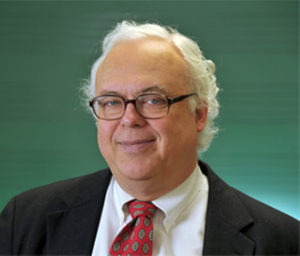Peter Jeffrey Elected Fellow of the Medieval Academy of America

Warmest congratulations to Director of Sacred Music, Professor of Musicology and Ethnomusicology Michael P. Grace Chair in Medieval Studies, and Medieval Institute Fellow Peter Jeffrey, who has just been elected a Fellow of the Medieval Academy!
About Medieval Academy Fellowship, from their website:
The chief purpose of the Fellowship is to honor major long-term scholarly achievement within the field of Medieval Studies. Election to the Fellows is a gift bestowed by one’s colleagues. But in return, Fellows do what they can to ensure the continued vitality of Medieval Studies. They do this not simply by advancing their individual scholarship, but also by participating in the affairs of the Academy, electing new members to the Fellows in ways that reflect the diversity and range of Medieval Studies, lending their expertise when called upon to do so, and making donations to the Fellows’ Fund above and beyond the cost of membership dues to the Academy. By raising the profile of distinguished medievalists, the Fellowship in turn raises the profile of our profession at a time when the study of the Middle Ages cannot be taken for granted.
There may be up to 150 Fellows, who at the time of election are members of the Academy and residents of North America, and up to 100 Corresponding Fellows, who at the time of election are residents of countries outside of North America. Fellows may choose to become Emeriti/ae Fellows, opening up additional slots for new Fellows and giving up their right to vote in the Fellows election.
Read more about the fellowship election process and view its list of distinguished fellows.
Originally published by at medieval.nd.edu on January 18, 2023.
Latest Research
- University of Notre Dame and IBM Research build tools for AI governanceMain Building (Photo by Matt Cashore/University of Notre Dame) …
- Smarter tools for policymakers: Notre Dame researchers target urban carbon emissions, building by buildingCarbon emissions continue to increase at record levels, fueling climate instability and worsening air quality conditions for billions in cities worldwide. Yet despite global commitments to carbon neutrality, urban policymakers still struggle to implement effective mitigation strategies at the city scale. Now, researchers at Notre Dame’s School of Architecture, the College of Engineering and the Lucy Family Institute for Data & Society are working to reduce carbon emissions through advanced simulations and a novel artificial intelligence-driven tool, EcoSphere.
- Seven engineering faculty named collegiate professorsSeven faculty members in the Notre Dame College of Engineering have been named collegiate professors—a prestigious title awarded by the university and college in recognition of excellence in research, teaching and service. The designation may be conferred on faculty at the assistant, associate or…
- ‘A special challenge’: German studies scholar wins National Humanities Center fellowship for research on medieval womenFor CJ Jones, the joy of research is not the answers but the journey. And the next step on that journey is a fellowship with the National Humanities Center. …
- Notre Dame Lead Innovation Team partners with local WIC program to identify, prevent lead poisoning in childrenB.A.B.E. store “shoppers” now have something new to help their families: free lead screening kits offered by the University of Notre Dame’s Lead Innovation Team.
- Notre Dame Welcomes Ninth Cohort of Warrior-Scholars for Transformative Academic JourneyNOTRE DAME, IN – The University of Notre Dame recently concluded its ninth successful Warrior-Scholar Project (WSP) boot camp, hosting 34 dedicated Warrior-Scholars from June 21st to 28th. This intensive, week-long academic residency provided transitioning service members and veterans…













